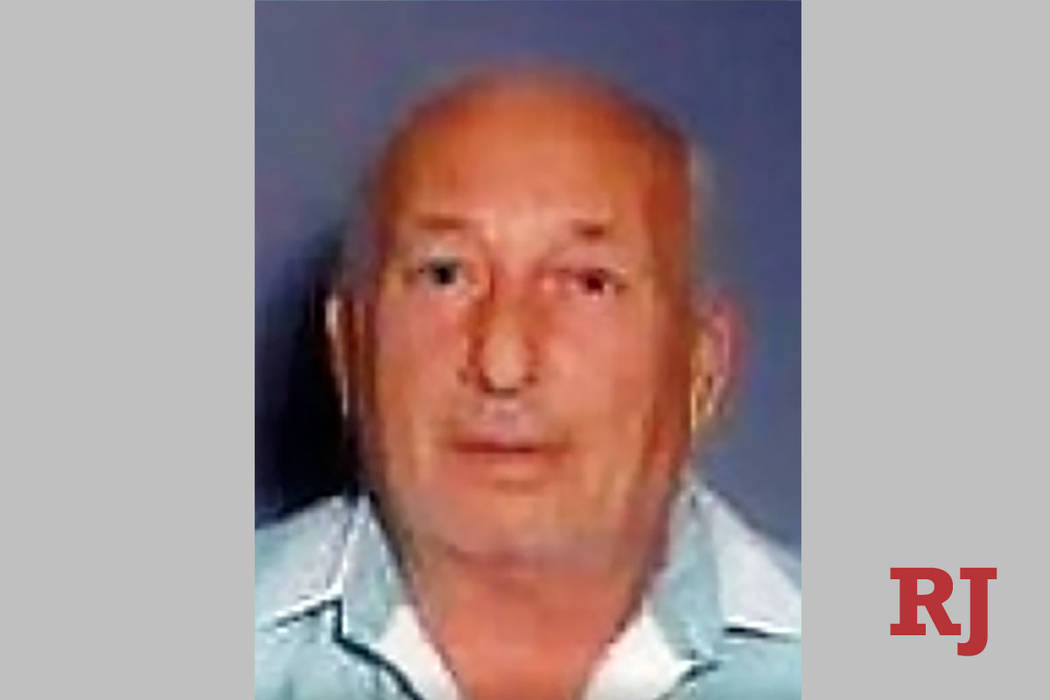Name of dead mob associate removed from Nevada’s ‘Black Book’
The Nevada Gaming Commission has determined that a mobster named in Nevada’s Black Book can no longer hurt the casino industry.
The reason: He’s been dead for more than two years.
Charles Joseph “Charlie Moose” Panarella, who had a reputation as a brutally sadistic hit man for the Colombo crime family in New York, was removed from “The List of Excluded Persons,” commonly known as the Black Book, in a unanimous vote Thursday.
“Because Mr. Panarella is deceased, he no longer poses a threat to the Nevada gaming industry, so therefore the (state Gaming Control) Board respectfully requests his removal,” Deputy Attorney General Tiffany Breinig said in remarks to the commission.
Panarella would have been 92 when he died. Former Las Vegas Mayor Oscar Goodman, who was a criminal defense lawyer for a number of mob associates before taking office in 1999, recalled his friendship with Panarella in his memoir “Being Oscar: From Mob Lawyer to Mayor of Las Vegas.”
“I had represented him in a number of cases, and you couldn’t find a more thankful client,” Goodman said in the book. “The feds, of course, had a different view of him. His reputation in the underworld was steeped in violence.”
Goodman said Panarella and a mob associate, Natale “Big Chris” Richichi, gave him a plaque that he hanged in his office as a reminder of their gratitude for representing them against federal charges.
“With me, he was always aces, always 100 percent, a very, very nice fellow,” Goodman said of Panarella in an interview Friday. “I know what they said about him, I know about the allegations where he apparently killed somebody and stuffed their private parts in their mouth, that kind of thing. But you could never tell that by the way that he treated my staff. He was always very decent. He treated the ladies in my office with respect and always was a very fine person and he had a wonderful family that accomplished a lot.”
Goodman also said he has never been a fan of “The List of Excluded Persons.”
“I’ve always said that the Black Book, ‘The List of Excluded Persons,’ is probably the most unconstitutional document in our nation’s history and the process attendant to it was silly,” Goodman said. “It was a way of law enforcement trying to cover up its inability to go after the real criminals by putting these fellows who were colorful and the subject of dime-store novel magazines into the Black Book without any nexus whatsoever with a violation of a gaming regulation or gaming law.
“Nothing in Charlie Panarella’s life would suggest that he ever was a cheat or took advantage of the casinos. It was just because he had a reputation.”
Panarella was placed on the ‘Excluded Persons’ list in September 1997. According to the listing, his last known address was in Las Vegas. He was known by seven aliases, and the listing said he was born in January 1925.
The attorney general’s office submitted a death certificate as evidence that he had died.
Gaming Commission Chairman Tony Alamo said the certificate was signed July 18, 2017.
“You can see that this really isn’t a high-priority matter,” Alamo said of the removal.
There have been 34 names removed from the Black Book since it was established in 1960, mostly because the people listed had died, according to Alamo. He said three people have been removed while alive, including a pair of people who were excluded in 1965 and removed from the list a month later. He said his research did not uncover a reason for the reversal.
With Panarella’s removal, there are now 35 people on the list, including one woman.
Two have been on the list the longest: Alvin George Kaohu and Wilford Kalaauala Pulawa, since Jan. 23, 1975. Their last known addresses are in Hawaii.
Contact Richard N. Velotta at rvelotta@reviewjournal.com or 702-477-3893. Follow @RickVelotta on Twitter.



















